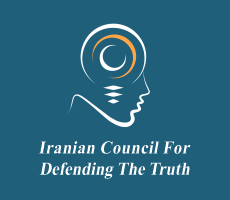One of the top trends of the 21st century is regional integration, which Iran has a promising chance to tap into by virtue of its geostrategic location. There are three official and two unofficial platforms that it can cooperate with, which necessitates the formation of a comprehensive strategy to this end. The present piece will briefly describe each of them with the intent of inspiring Iranian researchers to craft the most efficient policy for engaging with them all. It will then conclude with a few grand strategic suggestions that the author sincerely believes that the Islamic Republic should seriously consider:
Eurasian Integration Platforms
* Economic Cooperation Organization (ECO):
Iran is already a member of the ECO, which brings together itself, Afghanistan, Azerbaijan, the Central Asian Republics (CARs), Pakistan, and Turkey. The group hasn’t really accomplished much despite having enormous potential to more closely connect its members’ economies. They’re all importantly Muslim-majority states with differing degrees of shared cultural heritage that should at least in theory facilitate their integration. Their location along the South Eurasian Rimland (Turkey-Iran-Pakistan) and the Eurasian Heartland (Afghanistan- Azerbaijan-CARs) means that the ECO could eventually evolve into an economic force to be reckoned with.
* Eurasian Economic Union (EAU):
The Russian-led EAU (which also comprises Armenia, Belarus, Kazakhstan, and Kyrgyzstan) already has a temporary trade deal with Iran, and both parties officially hope to develop it into a more meaningful and long-term agreement in the future. The last two of EAU’s mentioned members overlap with the ECO, which is important to point out for strategic reasons. The prospects of a more comprehensive EAU-Iran trade deal ultimately rest on the future of Russian-Iranian relations, the present state of which still remains strong despite some differences, so hope certainly exists for reaching that milestone at some point in time.
* Shanghai Cooperation Organization (SCO):
Iran is an observer of what many regard as the Chinese-led SCO, which apart from the People’s Republic, brings together all of the CARs except for Turkmenistan, India, Pakistan, and Russia. This complex integration platform blends economic connectivity with financial and security cooperation, which accordingly makes it the most promising of the three organizations that have been discussed. The problem, however, is that new members must be agreed upon by all existing ones, and extra-regional parties might influence smaller CAR states into voting against Iran’s formal membership.
* President Aliyev’s Caucasus Connectivity Initiative:
Azerbaijani President Aliyev unveiled an ambitious initiative after his country’s glorious victory in what Baku officially regards as last year’s Patriotic War to bring together his nation, Armenia, Georgia, Iran, Russia, and Turkey into a six-state regional integration platform. To the best of the author’s knowledge, this idea doesn’t yet have an official name so it’s tentatively being referred to as the Caucasus Connectivity Initiative since all the proposed stakeholders are part of this region (Iran less so than others in the geographic sense but it has deep economic and historical interests there). If successful, then this idea could do economic wonders for the region.
* W-CPEC+:
The second of the informal platforms that were mentioned in the introduction, this one refers to the western expansion of the Chinese Belt & Road Initiative’s (BRI) flagship project of the China-Pakistan Economic Corridor (CPEC) into Iran, Azerbaijan, Turkey, and further afield. The political will exists on the Pakistani side to see this vision through, but it’ll require Chinese investment into Iran to truly take shape. Therein lies the significance of the rumored talks between Beijing and Tehran over what some have reported to be an investment deal that might reach upwards of hundreds of billions of dollars. In other words, this idea depends on Chinese support.
Grand Strategic Suggestions
* Prioritize Becoming a Production Powerhouse:
Iran’s future economic role in Eurasia shouldn’t just be as a transit state between East and West, but as a production powerhouse that can export industrial and other goods all throughout the countries that comprise the five integration platforms that were just discussed. This requires combining its Resistance Economy of sovereign resilience in the face of intense Western sanctions pressure with enticing investment incentives in order to court much-needed Chinese and other financial assistance to this end. By promoting the hard work ethics associated with its Resistance Economy, Iran can maximize its appeal to interested foreign investors.
* Never Forget The “Group of Friends”:
Iran joined together with Algeria, Angola, Belarus, Bolivia, Cambodia, China, Cuba, Eritrea, Laos, Nicaragua, North Korea, Palestine, Russia, Saint Vincent and the Grenadines, Syria, and Venezuela to create what’s called the “Group of Friends in Defense of the Charter of the United Nations”. Not only do they oppose American military aggression anywhere in the world, but also its policy of economic coercion especially as manifested through its unilateral sanctions regimes. Iran must never forget that it can rely on this platform to promote its economic and soft power interests throughout the international community.
* Concentrate On Intra-Islamic Civilizational Connectivity:
Turkey, Iran, and Pakistan have very rich Islamic histories that profoundly shaped their Afghan, Azerbaijani, and Central Asian partners throughout the centuries. The first trio are also some of the largest and most powerful Muslim countries with the world with among the most impressive though still largely untapped economic potentials. They must therefore concentrate on enhancing intra-Islamic civilizational connectivity between themselves in order to create an informal cooperation axis that could serve as a springboard for jointly expanding their collective influence deeper into the ECO and other relevant Eurasian integration platforms.
* Serve as A Eurasian Integration Entry Point for Allies:
Iran should do its utmost to include its Iraqi, Lebanese (Hezbollah), Syrian, and Yemeni (Ansarullah) political allies into the same Eurasian integration platforms that the Islamic Republic is presently engaged with. It can serve as their entry point to these structures and eventually facilitate their formal interactions with it, likely beginning with informal Iranian-backed talks in order to explore interest in their membership and possible timelines to bring it about. This isn’t just an act of solidarity with Iran’s allies, but also shows the country’s prospective partners the value that closer cooperation with the Islamic Republic can bring to them too.
* Continue Pushing Ahead Despite Speed Bumps:
The path towards closer Eurasian integration is part of the irreversible historical trend of multipolarity, but it isn’t without its hiccups either. There will certainly be some speed bumps along the way, but Iran must nevertheless play the long game and continue pushing ahead in this direction no matter what. The country’s geostrategic destiny is to function as an integral part of the supercontinent’s evolving socio-economic and political networks. Its traditional rivals will do all that they can to thwart this, including by lobbying some members of the Eurasian integration platforms that Iran wants to join, but Tehran mustn’t ever give up.

